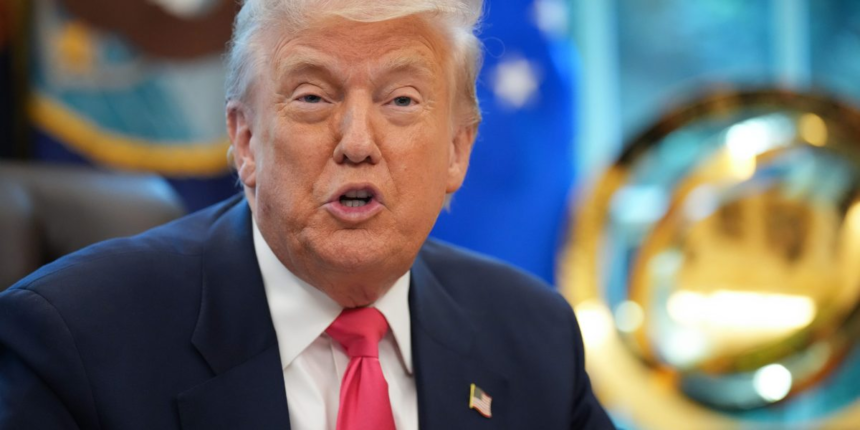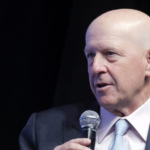The U.S. government is getting the stake through the conversion of $11.1 billion in previously issued funds and pledges. All told, the government is getting 433.3 million shares of non-voting stock priced at $20.47 apiece — a discount from Friday’s closing price at $24.80. That spread means the U.S. government already has a gain of $1.9 billion, on paper.
In a statement, Tan applauded Trump for “driving historic investments in a vital industry” and resolved to reward his faith in Intel. “We are grateful for the confidence the President and the Administration have placed in Intel, and we look forward to working to advance U.S. technology and manufacturing leadership,” Tan said.
But the Trump administration, which has regularly pilloried the policies of the Biden administration, saw the CHIPs act as a needless giveaway and is now hoping to make a profit off the funding that had been pledged to Intel.
“We think America should get the benefit of the bargain,” U.S. Commerce Secretary Howard Lutnick said earlier this week. “It’s obvious that it’s the right move to make.”
About $7.8 billion had been been pledged to Intel under the incentives program, but only $2.2 billion had been funded so far. Another $3.2 billion of the government investment is coming through the funds from another program called “Secure Enclave.”
Although U.S. government can’t vote with its shares and won’t have a seat on Intel’s board of directors, critics of the deal view it as a troubling cross-pollination between the public and private sectors that could hurt the tech industry in a variety of ways.
For instance, more tech companies may feel pressured to buy potentially inferior chips from Intel to curry favor with Trump at a time that he is already waging a trade war that threatens to affect their products in a potential scenario cited by Scott Lincicome, vice president of general economics for the Cato Institute.
The 10% stake could also intensify the pressure already facing Tan, especially if Trump starts fixating on Intel’s stock price while resorting to his penchant for celebrating his past successes in business.
Nancy Tengler, CEO of money manager Laffer Tengler Investments, is among the investors who abandoned Intel years ago because of all the challenges facing Intel.
“I don’t see the benefit to the American taxpayer, nor do I see the benefit, necessarily to the chip industry,” Tengler said while also raising worries about Trump meddling in Intel’s business.
“I don’t care how good of businessman you are, give it to the private sector and let people like me be the critic and let the government get to the business of government.,” Tengler said.
The U.S. government’s stake in Intel coincides with Trump’s push to bring production to the U.S., which has been a focal point of the trade war that he has been waging throughout the world. By lessening the country’s dependence on chips manufactured overseas, the president believes the U.S. will be better positioned to maintain its technological lead on China in the race to create artificial intelligence.
—-
Liedtke reported from San Ramon, California.









